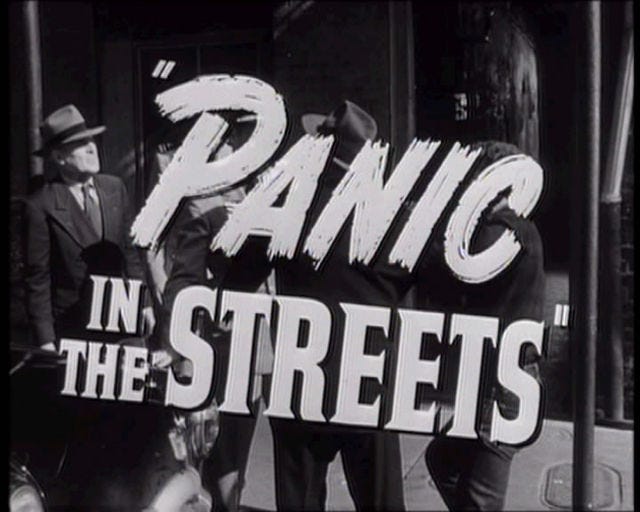Go Ahead, Say ‘Gay’
The ‘grooming’ panic is about homophobia, not protecting children
As what we in the Alphabet Community derisively call a “straight-acting” gay man, I’ve lost track of the times people have mistaken me for a heterosexual. Usually, this error takes the form of being asked about a girlfriend or a wife, a question that, depending on the location and the circumstance (reporting trips to various outposts of the former Soviet empire and the West Bank not being particularly welcoming places for those of the same-sex-loving variety), I politely deflect or answer candidly by stating that my partner is, in fact, a man. Although various self-appointed Alphabet Community spokespersons insist that I should take great umbrage at such displays of oppressive heteronormativity, rarely have I felt the need to reprimand my interlocutors, who are usually acting in good faith. Heterosexuality, after all, has long been regarded as the default orientation of the human species, an expectation that Gen Z is doing its best to upend.
People assuming that I am straight is something that happens much less frequently these days, however, a salutary development that I believe to be more than just a consequence of my own visibility as a gay writer, but indicative of a larger trend. In 2022, the vast majority of Americans understand that gay people, as Proust wrote, are a “part of the human whole … numbering its adherents everywhere, among the people, in the army, in the church, in the prison, on the throne.” And they understand this primarily because they know openly gay people, something that was not the case when gay people were compelled by law and social convention to live secret lives.
The legal equality and broad social acceptance that gays and lesbians have achieved over the past 60 years is one of the great triumphs of the liberal society, a direct result of the United States’ capacity for pluralism, tolerance, and free expression. Consider how, within living memory, homosexuality was illegal in every state, gay people were stigmatized as mentally ill, and the dominant media image of the homosexual was that of a dangerous “sexual psychopath” who lurked in public parks and preyed on children, and you will appreciate just how far we—gay and straight Americans—have come.
As the author of a forthcoming book revealing the many and surprising ways homosexuality influenced American national politics over the course of the 20th century, as well as a 2019 essay titled “The Struggle for Gay Rights is Over,” I will be the first to acknowledge the progress our country has made in welcoming gay people in from the shadows. But every now and then, the old bigotry rears its ugly head, and bigotry is what I believe best describes Florida’s much-discussed Parental Rights in Education Act. By banning “discussion” and “instruction” on “sexual orientation or gender identity” in classrooms (a phantom threat that, even if it did exist to the extent claimed by the bill’s supporters, is best addressed at the local level), the measure goes far beyond the goals of its more well-intentioned backers, who quite reasonably want to shield their elementary-school-age children from the invidious nonsense of academic queer theory and radical gender ideology. Treating the mere existence of homosexuality as a taboo subject, the act conflates sexual orientation with sex and lends credence to the hoary slander that gay people are determined to “groom” children.
Consider the reaction to the bill from the usually sensible Abigail Shrier, a writer, who recalls how, when she was a girl, “we used to try and derail class by asking the teachers questions like, ‘Do you have a boyfriend?’ They never indulged these questions. They said ‘My private life is none of your business.’ That was the correct response. Bring it back.” My schoolmates and I too engaged in this juvenile behavior with female teachers who used the honorific “Ms.” But that the rest of our teachers had spouses and children was hardly a secret; photographs of their families were often visible on their desks. Do we expect gay people to practice a higher level of discretion about such anodyne realities? If so, why? In reaction to Disney’s opposition to the bill, anti-critical race theory campaigner Christopher Rufo lit up Twitter with a thread documenting employees of the corporation who have been arrested for various sex crimes against children, a seemingly long list not nearly so damning as Rufo thinks it to be once you realize that the company employs nearly 200,000 people. “Wait until he finds out about the Catholic Church,” snapped the great lesbian wit Katie Herzog.
In 1978, when an initiative that would have banned gay people from working as public school teachers was placed on the ballot in California, a conservative icon offered a pithy reply to those who said the measure was needed to “protect” kids from adults keen to “recruit” them into the gay lifestyle. “If teachers had such power over children,” Ronald Reagan wrote, quoting a voter with whom he had corresponded, “I would have been a nun years ago.” At a time when our elites of both political parties recklessly amplify a set of multiple moral panics, of which this latest Florida hysteria is a prime example, how stark is the absence of leaders willing to do the responsible thing and tell us to calm the fuck down.
James Kirchick is a Tablet columnist and the author of Secret City: The Hidden History of Gay Washington (Henry Holt, 2022). He tweets @jkirchick.




